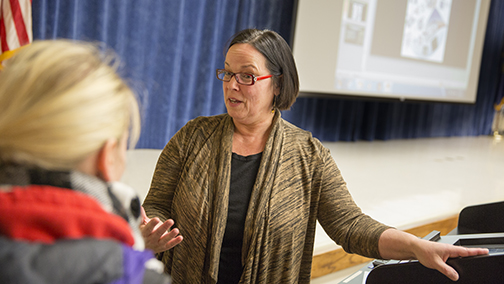
Willis named AAAS fellow
23 Nov 2016 By University Communications
Mary Willis, professor of nutrition and health sciences, is one of five University of Nebraska-Lincoln faculty members named fellows of the American Association for the Advancement of Science, the world's largest general scientific society. Fellows are selected by their peers for scientifically or socially distinguished achievements that advance science or its application. Willis was named for her for distinguished contributions to basic and applied anthropology, especially international health and nutrition, and the advancement of science through teaching, mentoring and service.
The tradition of electing AAAS fellows dates to 1874. This year's fellows will be formally announced in the Nov. 25 issue of the journal Science. They will be recognized Feb. 18, 2017, at the AAAS annual meeting in Boston. Nebraska's honorees are among 391 members who were elected fellows this year.
Willis' work interweaves research, teaching and community participation to tackle global hunger, one of the world's most pressing challenges.
After an early career studying dental variation and adaptation in primates, Willis shifted focus to participatory research that improves humanity and informs public policies.
Her integrative approach to science and policy is evident in her collaborative work on farming and food in highland Ethiopia. Her research is contributing important insights into addressing food insecurity in drought regions.
Her work also provides successful and pioneering models for developing culturally appropriate health interventions, measuring program effectiveness and expanding anthropological knowledge and theory.
For example, her study on Sudanese refugee dental morphology included the linguistic, nutritional, social and emotional consequences for individuals missing teeth. Attention to function and meaning in addition to morphology was immediately useful to the Sudanese refugee community.
In addition, Willis consults widely and contributes to legal cases and committees at state and national levels.
"I want to know that the research and teaching that I do has an impact on people's lives, especially in understanding and appreciating variation of all kinds. For me, it's all about diversity," Willis said. "I am both humbled and proud to be named a AAAS fellow."
College of Education and Human Sciences
Nutrition and Health Sciences